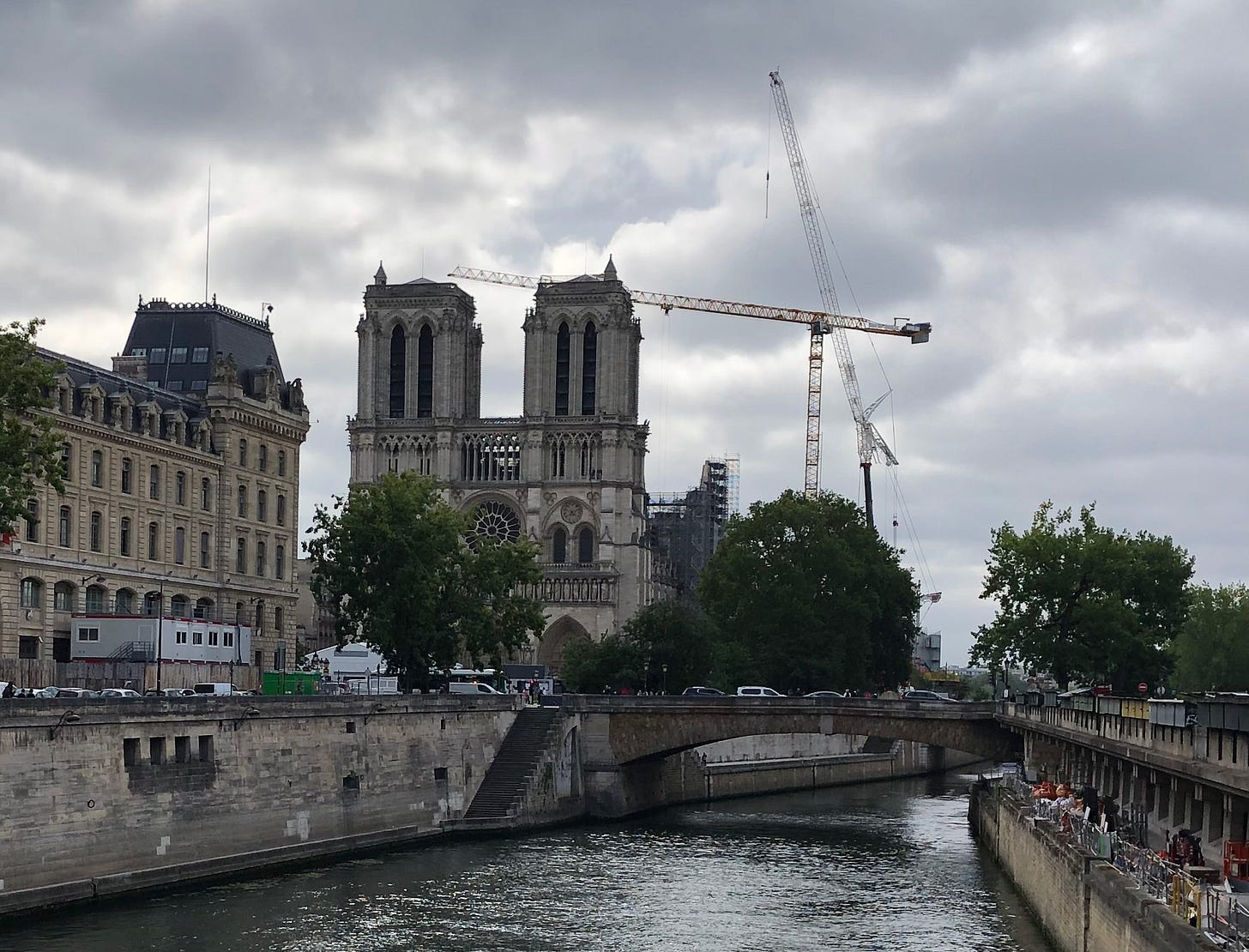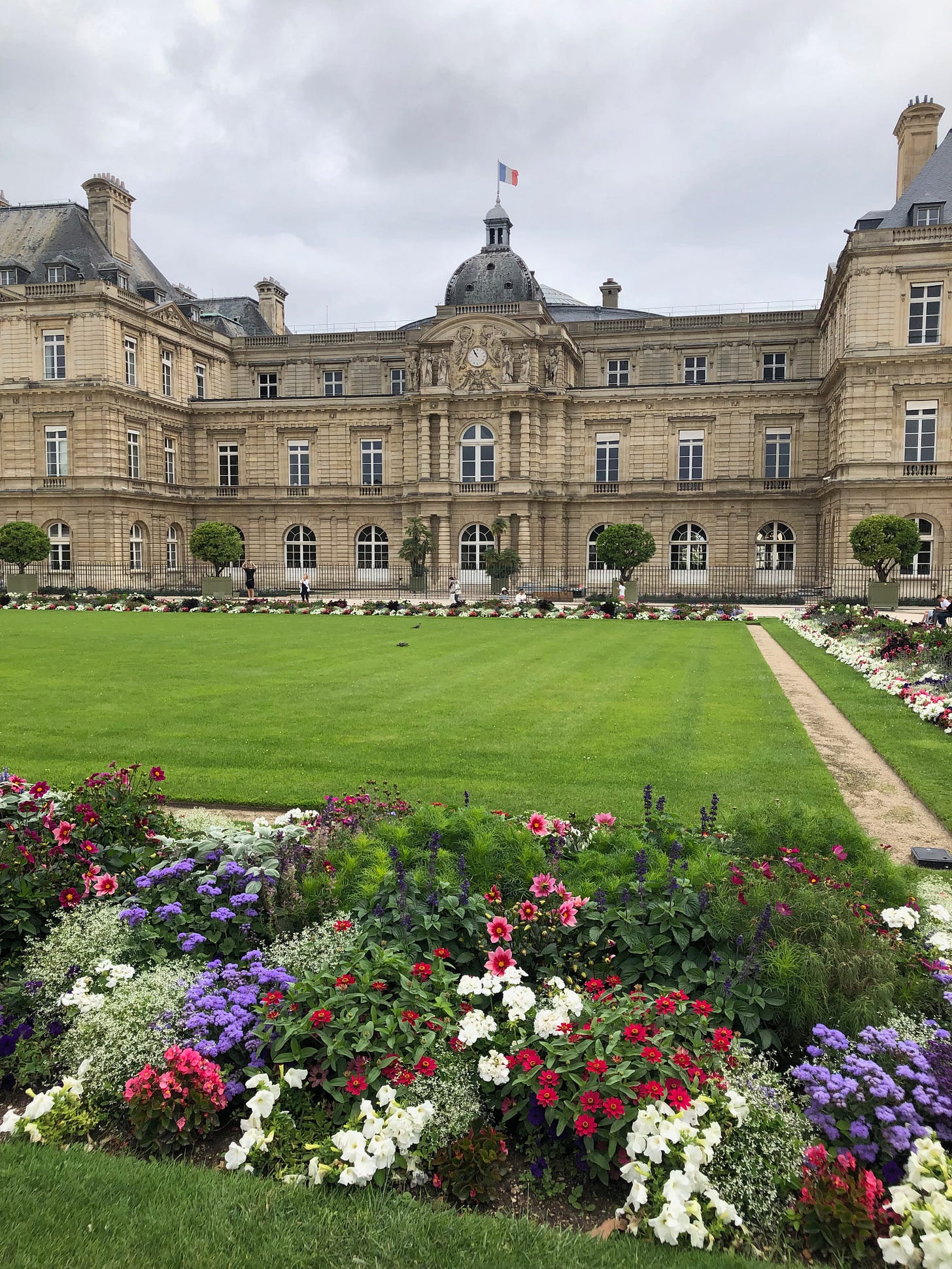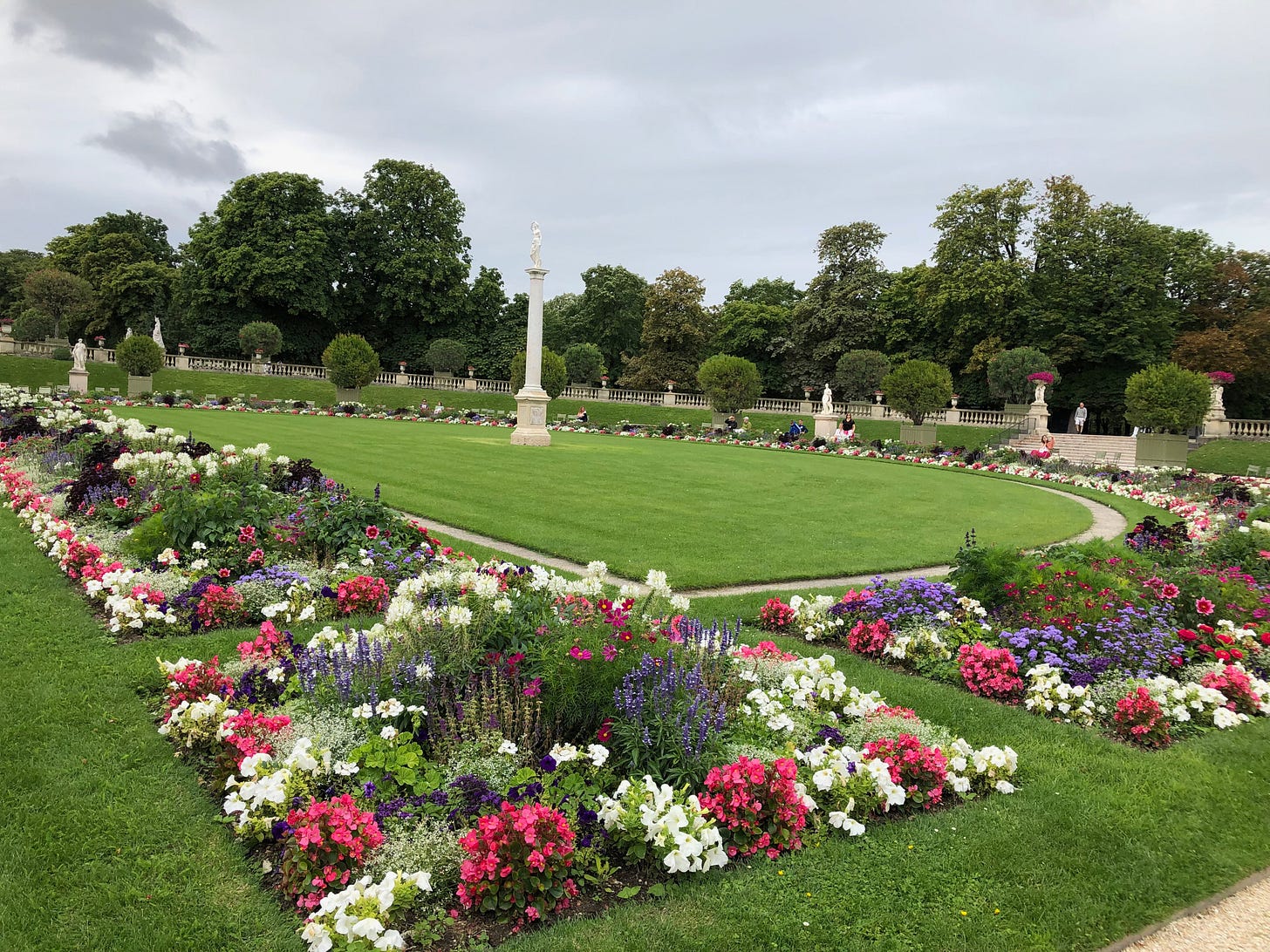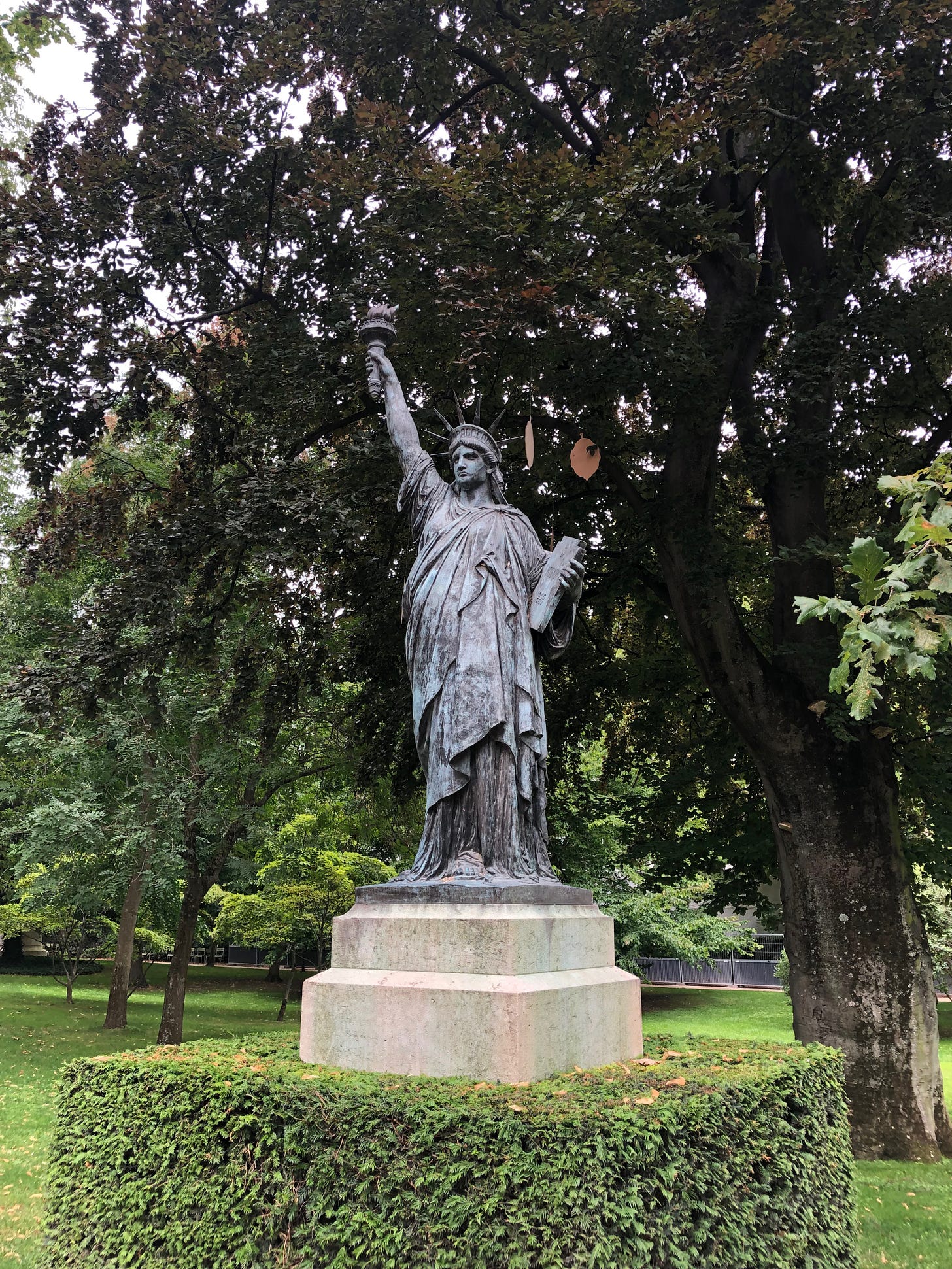I arrived in France yesterday after a seven hour journey by train from Leipzig, Germany. My final days in Leipzig primarily consisted of watching Women’s World Cup matches and practicing my French on Rosetta Stone. I was mentally checked out from Germany long before I physically departed. That’s not to say I didn’t like Germany, it certainly has some great qualities, but it did not take long for me to know it was not the place for me.
It’s so easy to imagine going to a place and it being a certain way, and of course we know that we are only setting expectations that will probably not be met, but we still try to make as realistic of expectations as we can based on the information we can find as well as our knowledge and experience.
I have visited Germany four times prior to my most recent visit and only been to France twice, yet French language and culture have been an important part of my life for many years - at least since my first French language class in 2009. I’ve loved reading English translations of French writers, contemporary and classic. I love classic French music, but also modern French pop and rap. I’ve studied French on and off at Bellevue College, University of Washington, The French Class of San Francisco as well as online with Rosetta Stone and Frantastique. So despite only having limited experience in the country, I feel immersed in the culture and language of France far more than that of Germany, where I have actually spent more time.
Given that I am a francophile, why did I head to Germany with the idea that I might settle there? Again, it’s that planning and imagining mindset we have when we are not yet in a place. I did a lot of research and concluded that Germany was a more practical place for me than France. Lower cost of living being the primary driver, but also what I perceived to be an easier to navigate immigration system. I also imagined a culture that celebrated the arts and had a multitude of writers and artists among the population. After discovering that Scotland met this cultural standard during my time living there, I was perhaps overly generous in extending my imagination to believe that all of Europe shared a similar appreciation for the arts.
While there have been many great German writers, musicians, artists and philosophers, in the modern day I see a culture that is more concerned with utilitarianism than the ‘useless’ arts. There is a direct and indirect economic value to the arts, but there is also a cultural value that supersedes the economic, in my view. Some societies care about cultural value more than others. One of the main reasons I have not enjoyed living in Seattle is because of the cultural void that has been created following massive gentrification. It is actually for pretty utilitarian reasons that gentrified places tend to deter artists: they’re too expensive! Even so, Paris, London and Edinburgh are all expensive places that somehow manage to retain artists (hats off to the artists who manage to scrape by in such expensive places). On the other hand, Dumfries is an example of a place where the arts thrive more than in gentrified places - being able to share a flat and pay 300 pounds per month in rent opens the possibility of not having to work a 40+ hour per week job just to pay the bills. I’m sure there are many of these places in every country, but they can be hard to find; I was fortunate to stumble upon Dumfries unexpectedly.
Ok, language - this post is actually meant to be about language. If you made it through my roundabout introduction, well done. In America, we mostly speak English and Spanish. Like most white Americans, I was brought up with English and never explored other languages much. In middle school, they told us we needed to take a foreign language if we wanted to go to university, so I signed up for Spanish. After one semester, I decided it was too difficult and I didn’t really want to go to university anyways. Pro tip for parents and educators: Don’t tell young people the reason to learn another language is because they need it to go to university or get ahead, etc. If someone had told me about all the amazing Spanish and Latino culture and history, the writers, the music, the places, I would have probably been more motivated to study the language.
When I finally decided to study French, it was actually for the same reason: I wanted to go to university (twelve years later, at the age of 24). At least I had the option to select among a few different language options and it was probably my first trip abroad (two years earlier) that led me to choose French. At the time of the trip, I just thought of it as a family vacation to France, but looking back I think it was one of the most transformative experiences of my life; the power of that trip took far longer than its two week duration to fully sink in. I didn’t choose France, my parents did, but I absolutely loved that trip! I will spare the details as this post is already too long for most blog readers 700 word capacity (as determined by the blog industry).
So when I decided to pursue university studies, I took a French class at Bellevue College and enjoyed it, then I had an intensive French summer course before I finally entered University of Washington in 2016. Learning French was difficult, but I battled through, in part because I wanted to pursue further education, but also because I enjoyed learning about the culture. At the time, I perceived myself as a ‘bad’ language learner, the same way I thought of myself as ‘bad’ at math and science. I think that belief was born from the strange culture and oftentimes poor teaching that haunts the more lucrative subjects in public secondary schools. Letting young people think that they are somehow inherently good or bad at particular subjects can do irreparable damage, all too often it's a matter of poor teaching, poor study habits, or both. In any case, it’s not pre-determined.
I consistently earned good marks in French, leading me to overcome my negative self-perception. However, once I was admitted to university, I did not continue my language studies. Languages are hard, learning them requires a lot of motivation, in most cases I think people learn new languages out of necessity. Necessity is a good motivator.
It’s never been necessary for me to learn an additional language (save for university entrance requirements). However, I have faced the challenge of being thrown into a culture that does not speak English a few times - it has always been a distressing experience. Going to the tourist parts of Paris or Rome where everyone speaks English is one thing, but when I traveled off the beaten path in Greece, Italy, Germany and other places, if I didn’t have a friend with me who spoke the language, I faced a great struggle upon learning most people I encountered did not speak English and I didn’t speak their languages. These are the experiences that help me understand why immigrants to America often avoid even leaving their homes: the challenge of living in and navigating a place without a shared language is overwhelming.
Since arriving yesterday, I have sat at cafés in Paris and overheard waiters who graciously interact with American tourists who don’t even try to speak French - they’ve come here expecting everyone to speak their language. When I try to use my (elementary) French, everyone responds in English - except at the bookshop I visited today and Alliance Française, where I am studying French. I know that things are different in parts of France outside of this tourist bubble, and that’s where I intend to go soon. As much as I love Paris, I have neither the desire nor the money to live here.
Before I went to Leipzig, I made the foolish assumption that all Germans spoke English. I was quickly proven wrong, with most of my daily interactions requiring stumbling through the fact that neither party shared a common language. Many people in Leipzig told me that Berlin would be better for me as more people speak English there. I thought that I would just learn German and started with lessons using Rosetta Stone before I traveled to Germany. However, after about a month of studying German online, I still couldn’t manage basic interactions in German. I had forgotten how much work it takes to learn a new language and the difference between practicing online and living in it. While I still only have basic French skills, my years of study put me at a level where I can manage most interactions.
I didn’t decide to come to France only because I had more familiarity with the language; really the question is why I didn’t go to France to begin with, given my passion for the culture. I think I failed to see how important culture is to me and how incompatible I am with German culture - until I arrived in Leipzig. It was a challenging but important lesson for me to learn.
I’ve only been in France for 24 hours, but it has already exceeded my expectations. To have lived a life so devoted to French cultural work, it is hard to believe I’ve only been to the country twice before. The people, the architecture, the music, the art, the literature, the gardens - I love it all. The fact that there is even a possibility for me to live in France is a dream come true and after my aborted attempt to give it a go in January, I am so happy to finally be here. It will take a lot of time and work for me to improve my French to the point of fluency, but knowing the basics makes taking part in the culture a lot easier.
Language barriers are easy to underestimate when not yet in a foreign place, but aside from wandering the tourist façades of places, it is a monumental challenge. I can see why some expats find English-speaking enclaves to settle (colonize?) in foreign lands, but I am not traveling merely for a change of scenery or more affordable living - I am in love with the French culture and I only will be able to fully appreciate it when I can comfortably read and speak the language.
Language is not just a means of communication; it’s the gateway into an entirely different culture, an entirely different way of thinking, understanding and experiencing the world. If we seek to understand other cultures, we must not only meet the people and visit the places, but undertake the more challenging task of learning the languages. By doing so, we can advance mutual understanding - rather than expecting everyone to see things our way.






